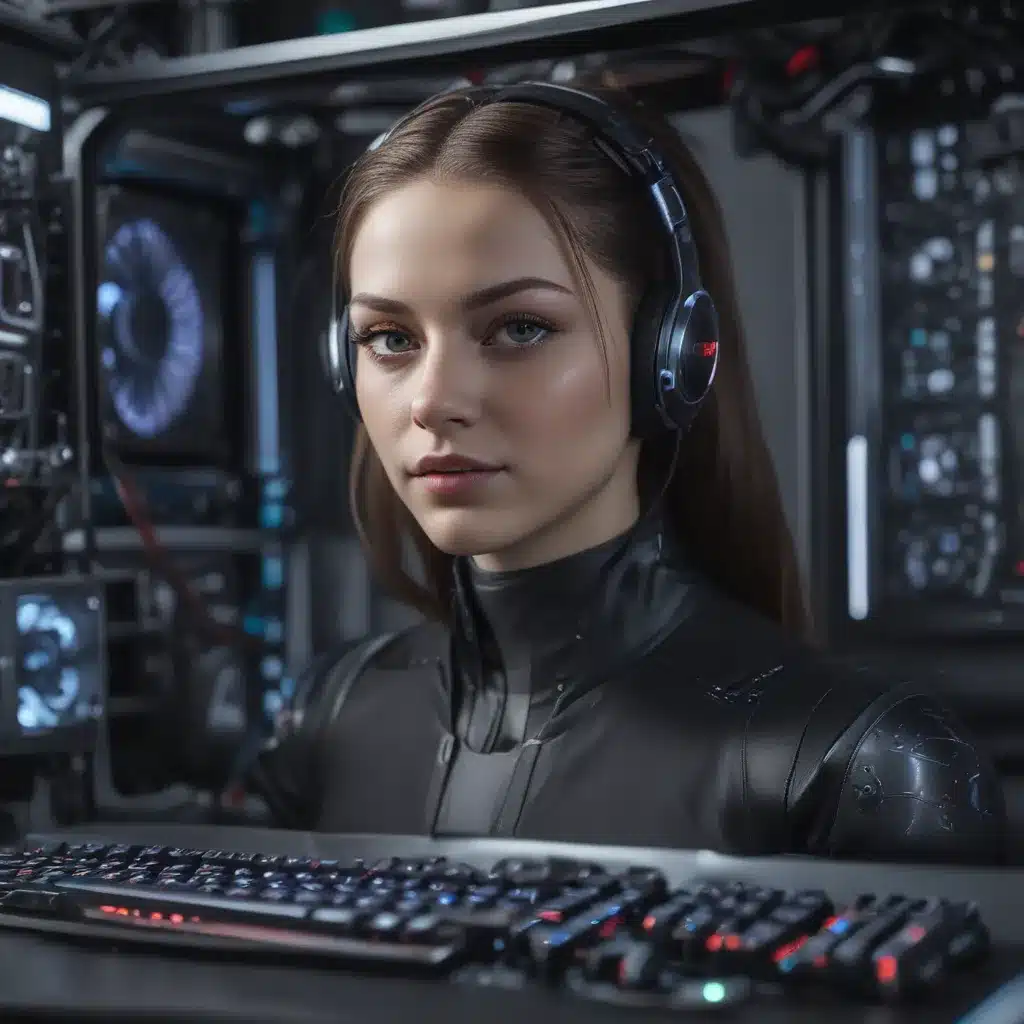
The Rise of AI in Custom Gaming PC Design
I have been closely following the advancements in artificial intelligence (AI) and its potential applications in the world of custom gaming PC design. The gaming industry has always been at the forefront of technological innovation, and the intersection of AI and custom PC design is particularly intriguing.
As an avid gamer myself, I have witnessed the evolution of gaming rigs, from basic desktop computers to highly specialized, cutting-edge systems. The demand for custom gaming PCs has soared, as gamers seek to maximize their performance and immerse themselves in the latest titles. This is where AI can potentially play a significant role in enhancing the custom gaming PC design process.
Optimizing the Design Process with AI
One of the key areas where AI can make a substantial impact is in the optimization of the design process. Designing a custom gaming PC is a complex task, involving the selection of compatible components, balancing performance, and ensuring thermal management. AI-powered algorithms can analyze vast datasets of system configurations, performance metrics, and user preferences to recommend optimal component selections and configurations.
By leveraging machine learning algorithms, designers can quickly identify the most suitable hardware combinations, taking into account factors such as game requirements, user needs, and budget constraints. This can significantly streamline the design process, reducing the time and effort required to create a high-performance custom gaming PC.
Moreover, AI can assist in predicting the thermal performance of a system, allowing designers to proactively address potential cooling challenges. By simulating airflow patterns and component temperatures, AI can help designers optimize the case layout, fan placement, and cooling solutions, ensuring that the final system operates at peak efficiency without compromising on performance.
Personalized Recommendations and Customization
Beyond the optimization of the design process, AI can also play a crucial role in personalized recommendations and customization. Each gamer has unique preferences, playstyles, and performance requirements. AI-powered systems can analyze a user’s gaming habits, performance needs, and aesthetic preferences to suggest tailored component selections and design options.
Imagine a scenario where a gamer visits a custom PC design service and is greeted with a personalized recommendation engine. This AI-driven system could analyze the user’s gameplay data, preferred game genres, and even their budget, to propose a custom gaming PC that perfectly aligns with their needs. The user could then fine-tune the design, with the AI seamlessly suggesting compatible components and optimizing the overall system configuration.
This level of personalization not only enhances the user experience but also ensures that the final custom gaming PC is truly tailored to the individual’s requirements. By incorporating AI into the design process, custom PC services can provide a more streamlined, efficient, and personalized experience for their clients.
Enhancing Visualization and Collaboration
Another area where AI can contribute to custom gaming PC design is in the realm of visualization and collaboration. AI-powered rendering and simulations can provide designers and clients with a more immersive and accurate representation of the final system.
Imagine being able to visualize your custom gaming PC in a 3D environment, with the ability to rotate and inspect the system from various angles. AI-driven rendering engines can generate photorealistic images and even interactive 3D models, allowing clients to see the final product before it’s even built.
Furthermore, AI can facilitate collaborative design experiences, where designers and clients can work together in real-time to refine the custom PC’s specifications. AI-powered tools can enable remote collaboration, allowing designers and clients to discuss, modify, and approve the design remotely, streamlining the overall process.
The Challenges and Considerations
While the potential benefits of AI in custom gaming PC design are promising, there are also challenges and considerations that must be addressed. Ensuring the accuracy and reliability of AI-driven recommendations and simulations is paramount, as any inaccuracies could lead to suboptimal system configurations or even performance issues.
Additionally, the integration of AI into the design process requires a deep understanding of both the technical aspects of custom PC building and the capabilities of AI algorithms. Designers must carefully select and train the AI models to ensure they are tailored to the specific needs of the custom gaming PC market.
Privacy and data security are also crucial considerations, as the personalization and customization features powered by AI may involve the collection and processing of user data. Designers must implement robust data protection measures to safeguard the privacy of their clients.
The Future of AI in Custom Gaming PC Design
As I look to the future, I am excited about the continued evolution of AI and its potential to revolutionize the custom gaming PC design industry. With advancements in machine learning, computer vision, and natural language processing, the capabilities of AI will only continue to grow, enabling even more sophisticated and personalized design experiences.
I envision a future where AI-powered design platforms seamlessly guide users through the custom PC building process, providing real-time recommendations, optimizations, and visualizations. These systems could even suggest unique design concepts, pushing the boundaries of what’s possible in custom gaming rigs.
Moreover, the integration of AI with other emerging technologies, such as virtual reality and augmented reality, could create immersive design experiences, allowing users to virtually assemble and preview their custom gaming PCs before committing to the final build.
Conclusion
In conclusion, the integration of AI into custom gaming PC design services holds immense potential. By optimizing the design process, providing personalized recommendations, enhancing visualization and collaboration, and addressing the challenges and considerations, AI can revolutionize the way custom gaming PCs are created.
As an avid gamer and a proponent of technological innovation, I am excited to witness the continued evolution of AI-powered custom PC design services. The possibilities are endless, and I believe that the future of custom gaming PC design will be defined by the seamless integration of human expertise and the power of artificial intelligence.












